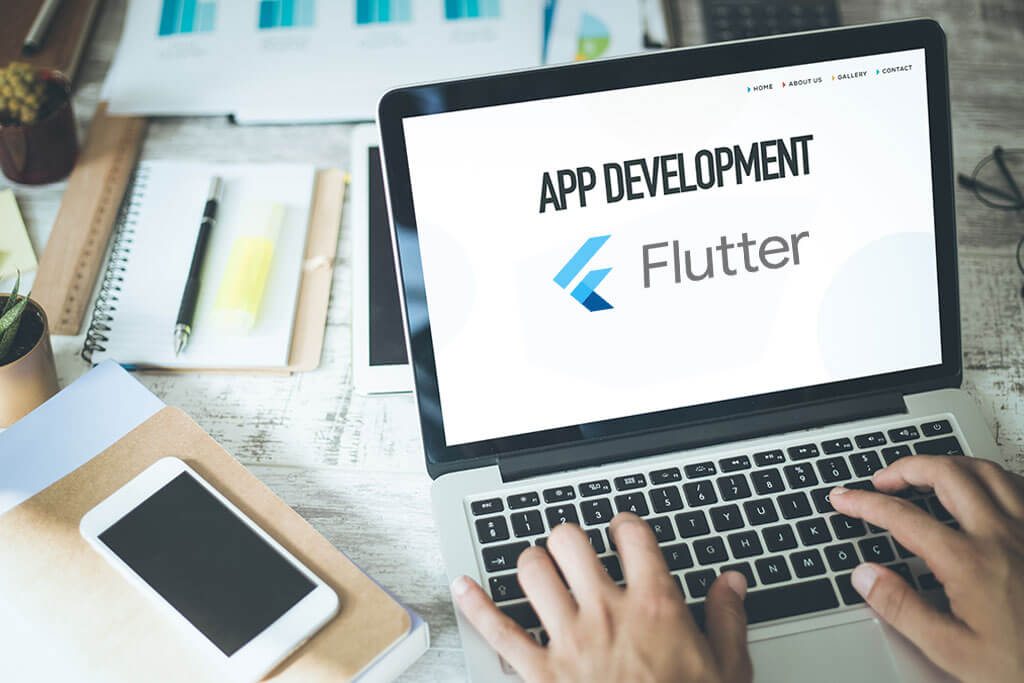Flutter is a cross-platform mobile development framework that allows you to build native-looking apps for Android and iOS from a single codebase. Flutter is gaining popularity among developers due to its high performance, expressive and flexible UI, and hot reload feature.
In this blog post, we will give you a beginner’s guide to Flutter app development. We will cover the basics of Flutter, such as what it is, why you should use it, and how to get started. We will also discuss some of the benefits of using Flutter, as well as some of the challenges that you may face.

What is Flutter?
Flutter is an open-source framework developed by Google. It is a reactive framework, which means that it updates the UI in response to changes in the underlying data. This makes Flutter apps feel very responsive and smooth.
Flutter is also a cross-platform framework, which means that you can build a single app that runs on both Android and iOS. This can save you a lot of time and effort, as you don’t need to develop two separate apps for each platform.
Why Use Flutter?
There are many reasons why you might want to use Flutter for your next mobile app project. Here are a few of the benefits of using Flutter:
- High performance:
Flutter apps are known for their high performance. This is due to the fact that Flutter uses the Skia graphics library, which is a very efficient graphics library.
- Expressive and flexible UI:
Flutter’s widgets are very expressive and flexible. This means that you can create beautiful and complex UIs with ease.
- Hot reload:
Flutter’s hot reload feature allows you to see your changes to the code immediately in the app. This is a great way to speed up your development process.
- Easy to learn:
Flutter is a relatively easy framework to learn. This is due to the fact that it uses a simple and consistent API.
Benefits of Using Flutter
In addition to the benefits mentioned above, there are a few other benefits of using Flutter. For example, Flutter is very well-documented. This means that you can easily find help if you get stuck.
Flutter is also a very active community. This means that there are a lot of people who are using Flutter and who are willing to help each other out.
Challenges of Using Flutter
While Flutter has many benefits, there are also a few challenges that you may face. For example, Flutter is a relatively new framework, so there may not be as many libraries and plugins available as there are for other frameworks.
Another challenge is that Flutter can be a bit complex to learn. However, if you’re willing to put in the effort, Flutter can be a great framework for building mobile apps.
Conclusion
Flutter is a powerful and versatile framework that can be used to build beautiful and high-performance mobile apps. If you’re looking for a framework that can help you build great mobile apps, Flutter is a great option.
The Future of Flutter
Flutter is a rapidly growing framework, and it is clear that it has a bright future. Google is committed to Flutter, and they are investing heavily in its development. This means that Flutter is likely to continue to grow and improve in the years to come. If you’re interested in learning more about Flutter, I encourage you to check out the official Flutter website and the many online resources that are available. With a little effort, you can learn how to use Flutter and build great mobile apps.









